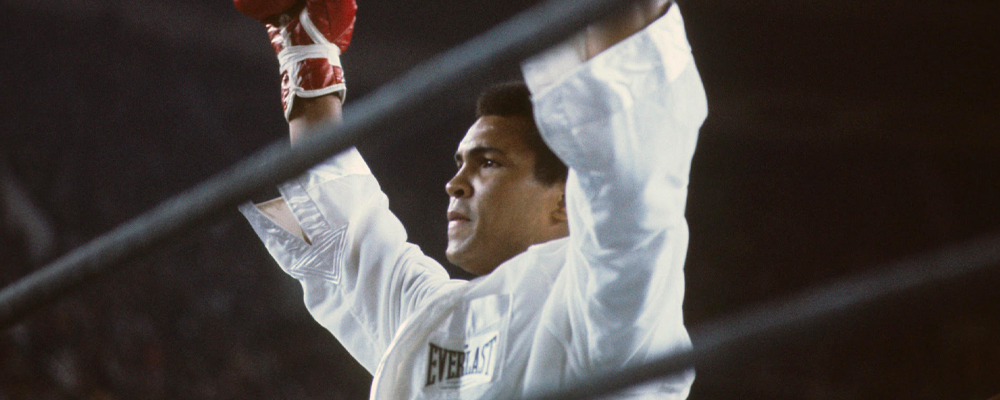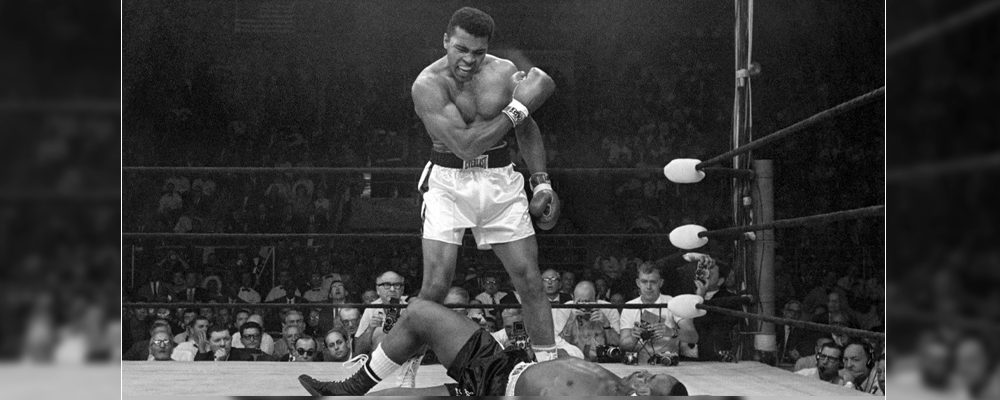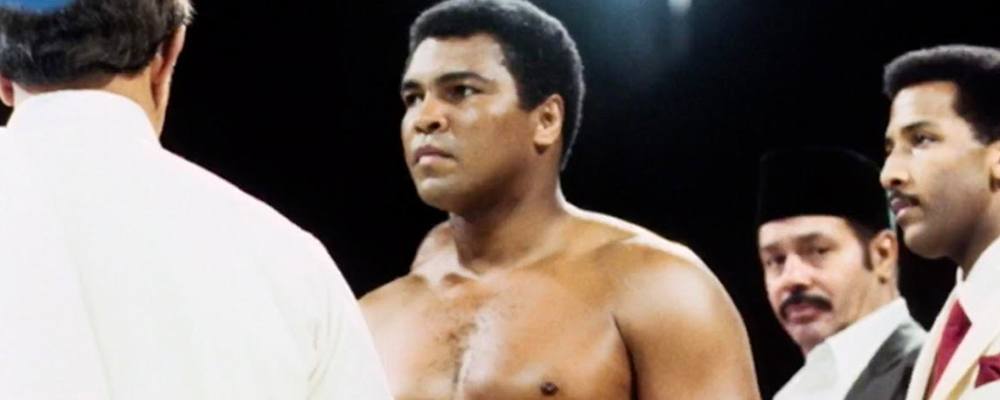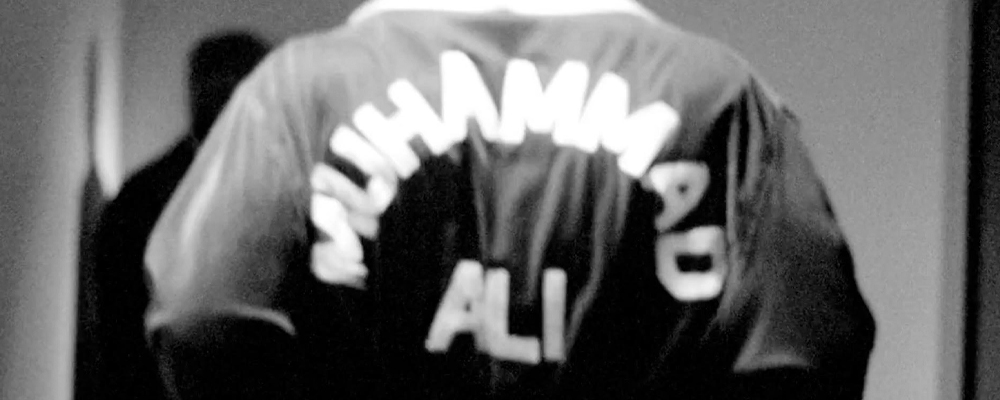Muhammad Ali’s Legendary Fights and Political Voice Fuel HBO’s ‘What’s My Name: Muhammad Ali’
Alci Rengifo
Muhammad Ali transcended the very idea of a famous athlete. He was a dynamic personality that became a social and political symbol, helping define an era. HBO’s two-part documentary “What’s My Name: Muhammad Ali” charts the public image of Ali, from his beginnings as a young, fiery boxing prospect to his final years as an icon. Directing is Antoine Fuqua, a filmmaker of stylish action cinema, here applying his energy to archival material capturing Ali’s astounding skills in the ring, and his equally speedy capacity for chatter. While Fuqua never dares stray beyond making a hagiography, it is stirring to see what made Ali a cultural force.
Born Cassius Clay in Louisville, Kentucky, the man was a natural. He wins a gold medal at the 1960 Olympics and begins a skyrocketing boxing career. But what puts Clay on the media spotlight is also his fierce wit, rapid-fire gift for gab and spontaneous poetics. Not only does Clay gain fame through his ability to demolish opponents with lightning fists, winning a world heavyweight bout against Sonny Liston in 1964, but he is not afraid to issue blistering social commentary. He recounts being denied service in his hometown at a restaurant for being black, even after winning an Olympic gold medal. As the 60s roll forward Clay joins the Nation of Islam, changing his name to Muhammad Ali. He becomes close friends with Malcolm X and dutifully follows the teachings of Elijah Muhammad. He also becomes more outspoken about racism in America, which culminates in his 1967 refusal to be drafted to fight in Vietnam. Sparking divisive opinions, Ali fights Joe Frazier, losing and igniting a vendetta that will result in two more rematches. He also takes on George Foreman in the legendary 1974 “Rumble in the Jungle” fight in Zaire. But in his twilight years Parkinson’s will afflict the fighter, slowing down his rhythm, but by then his status in history is assured.
“What’s My Name” is most engaging as a recap of the visual record we have of Muhammad Ali’s career. Fuqua assembles countless film clips, TV interviews, private home movies and fight coverage into an exhilarating montage. Like last year’s HBO docuseries on Elvis Presley, “The Searcher,” there is no iconoclasm here. Never does “What’s My Name” explore Ali’s private world, we get little information on his childhood, his four marriages, love affairs or any private thoughts that have nothing to do with boxing. While we get fascinating clips documenting his friendship with Malcolm X, nothing is ever touched upon regarding Ali’s reaction to Malcolm later breaking with Elijah Muhammad. Even the years Ali spent unable to box due to his draft refusal, dramatized with more insight in Michael Mann’s 2001 film “Ali,” are barely mentioned. The approach is not too surprising considering Fuqua and NBA star producer LeBron James made this project in collaboration with the Ali estate, which of course brings its own rewards in terms of access to rare footage (you will see the rare shot of Ali riding a horse in his private training camp). What does brilliantly come across is the spirit of Ali’s character.
The title of the documentary is taken from a 1967 fight with Ernie Terrell, before which Terrell openly mocked Ali’s Muslim name-change during a press conference. This only drove Ali to pummel Terrell in the ring while shouting “what’s my name?” Such a public display of sweet revenge comes as no surprise after we see Ali continuously boast about his powers before the cameras, famously calling himself pretty and verbally chopping down an opponent before fists are traded. But as the documentary makes clear, there was a method to this. Among some of the great insights we get here are Ali explaining that his public attitude was highly inspired by professional wrestler Gorgeous George. George’s flamboyant stage persona and boastful theatrics influenced Ali’s own technique for making big claims, epic promises and feigning a supernova ego. Ali understood the connection between commerce and celebrity, and that while his natural talent as a fighter was without question, adding some drama to the whole business made it more fun and appealing. It worked because the man’s brain was as impressive as his punching speed. It’s never tiresome to see him improvise trash-talk poems against his opponents during interviews, or banter with Dinah Shore, Steve Allen or Dick Cavett. His legendary friendship with Howard Cosell is on full display.
Most importantly, what emerges from “What’s My Name” is an athlete who was fiercely conscious about the need for social activism. A man of his time, Ali remains admirable for not taking the comfortable road of simply basking in his wealth and fame. He used his access to the public to denounce racism, sometimes with blistering and blunt observations. He jabs at white journalists with a playful, but knowing sense of humor that seems say, “you probably only have me on because I’m famous.” He mocks opponents as “Uncle Toms.” It’s quite a historical moment to behold when he refuses to fight in Vietnam and is condemned by another African-American legend, Jackie Robinson. When Martin Luther King, Jr. is assassinated Ali is at the funeral, and Fuqua plays over the footage a memorable, raw poem by Ali about the black experience in America beginning in chains.
But we are exploring here the life of one of the greatest of all boxing athletes, and Fuqua manages to take footage we have seen many times before and make it come alive. At times he slows down the frame rate, just to focus on the force of a punch. There is a young Ali, doing his iconic foot shuffle. His vendetta with Frazier plays like two classical warriors locked in endless combat, and the Rumble in the Jungle is a reminder of an era when giants walked the earth. Inevitably the documentary reaches its somber end, when Ali continues fighting well into the early 1980s even as it is obvious age and health are catching up. By the 90s Parkinson’s sets in and the titan is no more.
“What’s My Name” may not be the full, in-depth analysis of Muhammad Ali we have been waiting for. But nonetheless it is an exciting document of what made him an enduring force in the public consciousness. There is a mythic quality to such a personality, because few ever reach so high. Once we get to know Ali, even from the distance of celluloid and history, it’s impossible to forget him.
“What’s My Name: Muhammad Ali” premieres with two back-to-back episodes May 14 at 8 p.m. ET on HBO.




